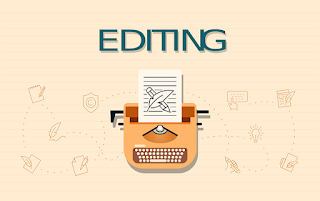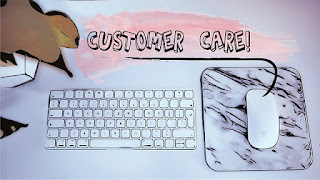Learning to Utilize an Editor
I love the publishing business, but like any business, there are times I struggle to maintain a good attitude. When you serve as an editor, your job is to deal with people, and we all know that dealing with people can be trying at best. Perhaps this is why writers love the seclusion of writing with only a pet at their feet.
Still, it is part of the job and we must learn to manage graciously. As we delve into this subject, it's essential to understand that there is no perfect person or editor on earth. Editors are folks like the rest of us, and they have good and bad days. So as we begin this trek, I would first suggest we start with grace.
Editors have a very tedious job, just from the standpoint of the words on the page. Don't even count the people who wrote the words. An editor's job is to make a writer's work as polished and beautiful as possible. They are not in the business of sending writers into failure. Without writers, editors would be jobless, so as we approach the subject of what we do when we disagree with an editor, remember the importance of grace.
We live in a world where entitlement abounds. Our society has grown so cocky that we tend to believe we can do no wrong, and if, by chance, you are bold enough to offer correction, then you've hurt my feelings and degraded my position. This is as good a place as any to begin.
Don't skip the professional edit - Writers have amazing tools at their fingertips these
For many, putting a story down from beginning to end means they've accomplished the perfect work, but it's not. Skipping the editing process or falling into the belief that a high school English teacher can fully work through what professional publication requires can lead to disaster. Not that our English teacher can't catch the grammar. They can. But professional writing has tons of twists that go beyond the general knowledge of our hard-working English teachers. Think of it like this: you need surgery on your knee, and your regular family physician recommends this. They've recognized and diagnosed the issue, but they are not a surgeon. Your family physician has great knowledge to diagnose and prepare you for surgery, but they are not trained to perform the task. You need a surgeon to correct the issue. The lesson in this – don't skip a professional edit. It will come back to bite you.
You disagree with the edits – No one likes their work tinkered with, but an editor's
job is to make your work clear for the reader. There are times you can disagree with your editor. When those times happen, have a chat with them. Sometimes, they simply need to understand where you are coming from to see the need. Other times, you need to understand, that their years of experience hold water.
In my first novel, the editor wanted to change the hook. The entire book was based around that first paragraph, so I asked her if we could chat. I needed to understand her thought process, and she needed to understand mine. Once we chatted, we found it was a matter of timeline—an easy fix. We worked together to correct the timeline. Boom, it was perfect. Sometimes you simply need to chat.
Insulted at correction - I recently received a note from an author who refused to make the edits we requested for our website. After she raked us over the coals for being insensitive and not knowing what we were doing, she informed us she would be embarrassed to have her work published on our site with those edits. I ran the edits past two additional editors not connected to our site, who both agreed with the changes. The result, after research, was our edits were good suggestions. It was fine that she did not want to comply. It was her work, and our response was polite yet simple. We withdrew the submission from our cue. At this point, it was not a matter of "edits," but attitude. If an author was bold enough to try and fight with us over a submission that didn't meet the guidelines, then was this the type of author we wanted to work with? It wasn't a matter of who was right or wrong. It was a matter of the heart.
Editors want your work to be the best it can be but learning how to work with an editor is vitally important. Trust their guidance and years of experience. Do your homework before you choose a private editor to work alongside. The number of traditionally published books will give you a gage of their experience within the industry. Check references. Any good editor is happy to provide those, if not, then perhaps this is not the editor for you.
Working with an editor will make your book shine.
Photos courtesy of Pixabay.com and emerson23work





Comments
Post a Comment